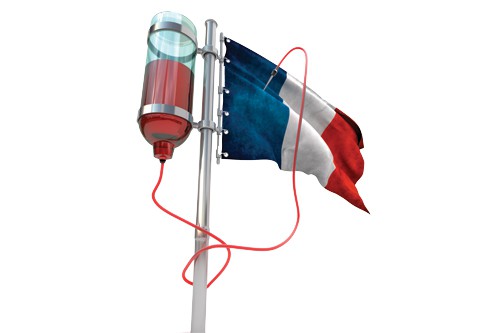
The French pharmaceutical market is forecast to grow at a ‘tepid’ rate due to the wider uptake of cheaper, generic medicines, according to a new study.
Research and consulting firm GlobalData says the country’s market will see an annual growth rate (CAGR) of just 0.7% from $46.2bn in 2014 to $48.2bn by 2020 – primarily due to the increasing focus on generic drugs.
France has been a relative latecomer to the use of generic medicines compared to the UK and Germany. In 2008, generic drugs accounted for just 21.7% of the French pharma market in terms of volume, though by 2013 this increased to 30.2%.
Joshua Owide, GlobalData’s director of healthcare industry dynamics, tells PMLiVE: “The UK and Germany have by far the highest level of generic penetration by prescribing volume, both with around 80% of all prescriptions being generic.
“This is a clear indication of the cost-conscious nature of the health economies at play here. The opposite can be said for Spain, France and Italy, where approximately 45%, 25% and 15% of all prescribing, respectively, is generic.”
To try and life these levels higher, the France’s cost-conscious government, which is still struggling from the 2007 global recession and the financial fragility of the Eurozone, has enacted new policies aimed to better encourage generic substitution once a patent has ended in an effort to save money.
This includes introducing a scheme under which patients who agree to generic substitution will not be required to pay for their drugs.
This has however been met with much resistance. One of the reasons the country has for many years successfully fought greater use of generics is because of its economy’s reliance on the big French pharma firms – Sanofi, Ipsen and Servier – coupled with a consumer culture that prefers patented medicines.
Patients in France prefer patented drugs and reject generics…
This environment, with little regard for generics, has in fact led to several cases of pharma companies in France seeking to denigrate generic versions of their products, or offer benefits to pharmacists for choosing their patented brands over generics.
Sanofi, Schering-Plough (wholly owned by MSD since 2009) and Janssen are among the companies the French Competition Authority (FCA) has launched enquiries into for this over the last few years.
Many in the industry are opposed to the substitution plans – for example, factory workers recently held protests after Bristol-Myers Squibb warned that it may cut jobs in the country because of wider generics use.
The government and the FCA contend, however, that increased use of generics would in fact fuel innovation by allowing the savings to be pumped back into the industry.
In its 2013 report on the issue the FCA suggested a number of ways to achieve this – including discounts for pharmacies favouring generic products, balancing the obligations of wholesale distributors and other intermediaries, and authorising online sales.
It seems from the GlobalData projections that this is already having the desired effect.
…but the government can no longer afford to pay for this
Cost concerns
The difficulty simply comes down to the fact that the country can no longer afford to fund expensive patented medicines at the expense of cheaper alternatives.
Part of the problem stems from France’s relatively high healthcare spend, which was 11.8% of its GDP in 2012 (the UK spent around 10% in the same period), pushed up, in part, by expensive patented drugs.
Such government spending funds France’s extensive healthcare reimbursement system, which sees the state health system pay money back into citizens’ accounts after they have paid for a service, such as a GP visit – an increasing drain on the government’s coffers.
This is why the French President, Francois Hollande, has enacted new policies to bring costs down and reduce the healthcare system’s shortfall.
Owide explains: “While patented drugs dominate France’s pharmaceutical market, the volume of prescribing attributed to generic drugs will shift closer to levels seen in the rest of Europe, restricting French market growth.
“The generic sector is mainly driven by a favourable regulatory regime, patent expirations and a variety of government incentives for physicians, pharmacists and patients to choose generics ahead of branded products.”
Restricted growth
The country’s pharma industry has long been one of the biggest in both Europe (second in market size only to Germany) and the world. It is also home to Sanofi, the world’s fifth largest pharma company, with France ranked the fifth biggest pharma market overall in the world, according to IMS Health’s 2012 global rankings.
This, however, was a fall from third in 2007, and France is expected to slip down a further place to sixth by 2017 – thanks mainly to the rise of the so-called ‘pharmerging’ markets of China, Brazil, Russia and India.
But GlobalData says that despite the negative impact of generics, France’s pharma market will still be boosted by a number of factors, including: an ageing population, tax incentives, a substantial skilled workforce and high public healthcare expenditure.
Owide adds: “By 2020, France’s elderly population is expected to account for almost 20% of the total population. As this demographic demands more medication than younger demographics, the need for high-quality healthcare is increasing.
“Additionally, numerous incentives, such as the abolition of corporate tax and the Research Tax Credit to support research and development, are enhancing the competitiveness of healthcare enterprises and will help to sustain the pharmaceutical market.”




